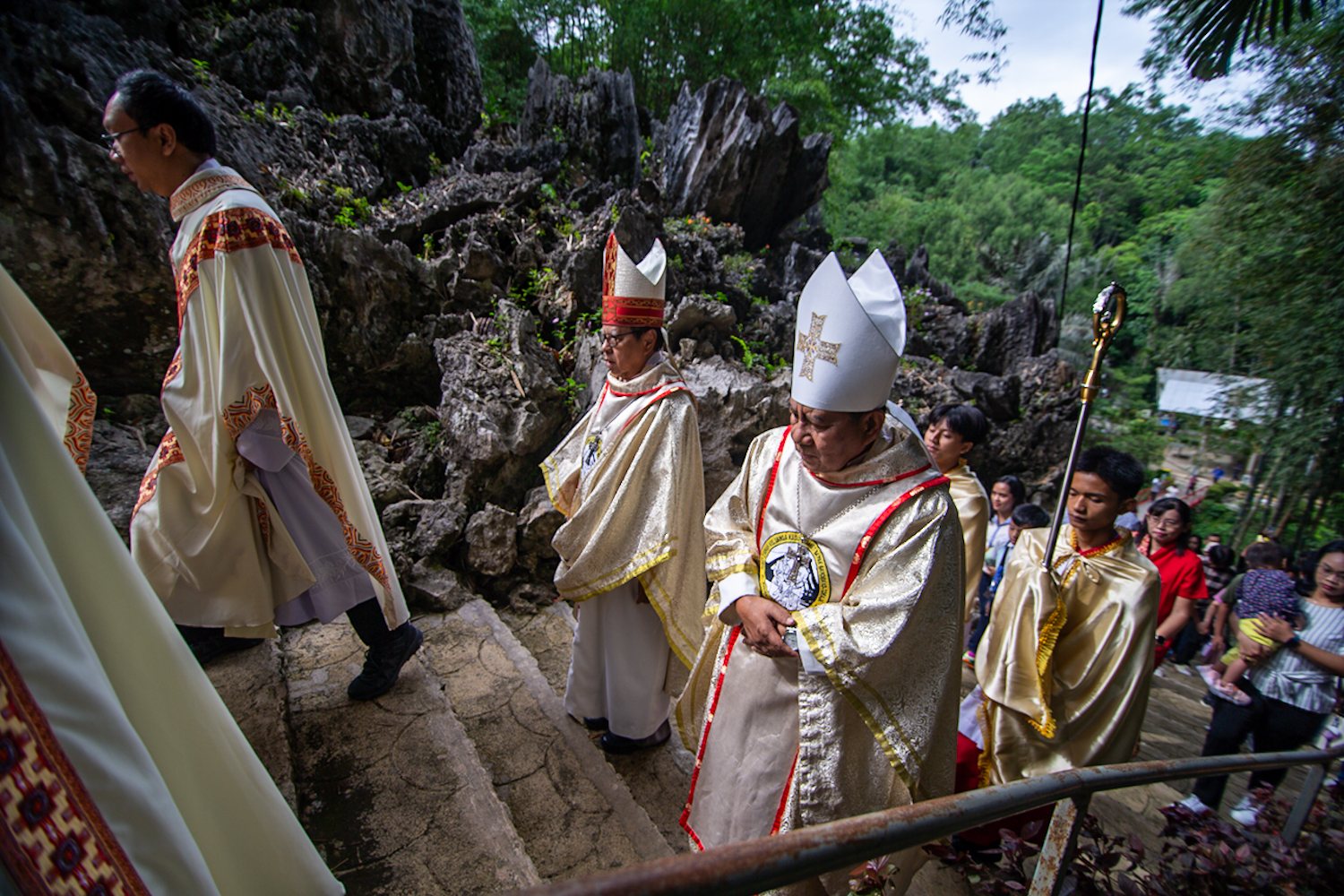“The righteous will flourish like the palm tree, they will grow like the cedar of Lebanon”
Joaquim Magalhães de Castro
The opening words of the homily given by Cardinal Marcello Semeraro during the solemn liturgical celebration of the beatification of Stephen El Douaihy (1630-1704), Patriarch of Antioch of the Maronite Church, were inspiring: “The righteous will flourish like the palm tree, they will grow like the cedar of Lebanon”.
The ceremony, which took place on August 2 and was attended by the current Maronite Patriarch, Cardinal Bechara Boutros Rai, was attended by over 10,000 people who filled the patriarchal headquarters of Bkerké, including hundreds of priests, religious men and women from all the Maronite dioceses in the world. In outlining the profile of the new Blessed, Archbishop Semeraro, current Prefect of the Dicastery for the Causes of Saints, also expressed the desire that “Lebanon continue to be a place where men and women can live in harmony and peace with one another”.
A desire that, unfortunately, given the dark moment the Middle East is going through, seems very difficult to achieve. But let us have hope, like the new Blessed Stephen, the most distinguished figure in the Maronite Church for more than three decades; and this, in difficult times of external persecution and several internal dissensions. During those long years, it can be said that Stephen did not know a single day of peace. The much-desired Peace that today, once again, seems to be an unattainable goal… However, there was no bitterness in Stephen’s heart. On the contrary, he used to say to those who mistreated and persecuted him: “I forgive you for everything you have done to me. And I am ready to suffer even more, in the name of love for God Our Lord, who suffered and died for me”.
The memory of Stephen Douaihy has been celebrated for centuries by followers of the Maronite Church, and his story is intertwined with all the tribulations experienced by Maronite Christians throughout time.
Born on August 2, 1630, in Ehden (northern Lebanon) into a noble family, Stephen studied Arabic and Syriac at the age of 11, and later entered the Maronite Seminary in Rome, where he obtained a doctorate in philosophy and continued his research into manuscripts dealing with Maronite history and liturgy. On March 25, 1656, after returning to his homeland, he was ordained a priest. Stephen would carry out his apostolate in various parishes in Lebanon and Syria, especially in Aleppo, dedicating himself to helping the poor and “actively contributing to dialogue between the Eastern Churches and the Catholic Church”. At that time, he would be appointed a missionary of Propaganda Fide. Following a visit to the Holy Land in 1668, he was ordained bishop and posted to the island of Cyprus. Two years later, on May 20, he was elected Patriarch of the Maronites. He was only forty years old.
As Patriarch, Stephen El Douaihy (Istifan al-Duwayhi in Arabic) supported the revival of the Maronite religious orders, which from then on adopted monastic rules (in line with the regulations in force in the Latin world), in line with the teachings of Saint Anthony The Great, the precursor of monasticism and patron saint of animals. Due to persecution and harassment by the public authorities, Stephen was often forced to take refuge in monasteries in the mountains or in the caves of Wadi Qannoubine. He died in Qannoubin, in the Kadisha valley, on May 3, 1704, and was buried in the cave of Saint Marina.
Blessed Stephen also maintained an intense intellectual activity, publishing important writings on Maronite liturgy and history, the mysteries of the Catholic faith, sermons and other philosophical and theological works.
He is considered one of the greatest Lebanese historians of the 17th century and was known as “The Father of Maronite History”, “Pillar of the Maronite Church”, “The Second Chrysostom”, “Splendor of the Maronite Nation” and “The Glory of Lebanon and the Maronites”.
The path to his beatification was paved by the miraculous healing of Rosetta Karam, a mother of three children who suffered from seronegative rheumatic polyarthritis that had left her incapacitated and demoralized, to the point of leading her to interrupt all treatment. Her “instantaneous, complete and lasting” healing occurred after a family prayer before the statue of the Patriarch located in front of the church of Ehden, Stephen’s birthplace, as has already been said here. “The main protagonist of the invocation,” reports the documentation released by the Dicastery for the Causes of Saints, “was the neighbor who, together with some members of the Fraternity of the Immaculate Conception, took the sick woman to the statue of the Venerable Servant of God that stood near her home and immediately began to pray”.
According to a local rite, the friend invited the sick woman to drink a coffee mixed with earth collected at the foot of the statue of the Patriarch, which she did with great devotion. After drinking the coffee, Rosetta felt a strong burning sensation, but she got up and began walking alone towards the statue to thank Stephen. Soon after, Rosetta walked another kilometer until she reached her sister’s house, to whom she personally announced the news of her cure.


 Follow
Follow


